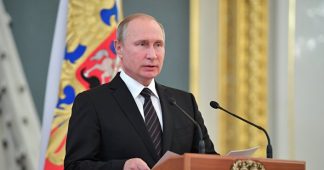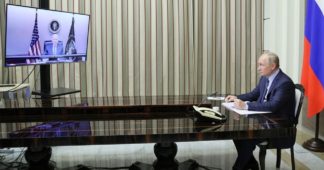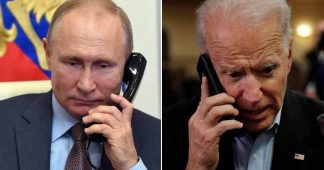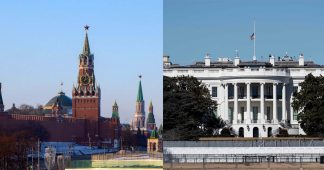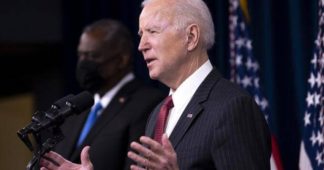Biden Announces Plans for NATO-Russia Meeting to Discuss Moscow’s Concerns
Ties between Russia and NATO hit new post-Cold War lows in recent months, culminating in the suspension of the bloc’s diplomatic mission in Moscow. Russian Foreign Minister Sergei Lavrov said ties between Russia and the Western bloc couldn’t even be called “catastrophic” because “to be catastrophic you need to have [relations]” to begin with.
US President Joe Biden has announced plans to set up a meeting between Russian and NATO member state officials to discuss Moscow’s concerns, including the bloc’s eastward expansion.
The planned meeting, which Biden said would be formally announced by Friday and include “at least four of our major NATO allies and Russia,” is expected to “discuss the future of Russia’s concerns relative to NATO writ large” and aimed at “bringing down the temperature along the Eastern Front.” The plans for talks come a day after Biden’s video call with Russian President Vladimir Putin, during which the two leaders brought up a range of security-related issues, including escalating tensions over Ukraine, cybersecurity, and strategic stability.
In his remarks to reporters at the White House on Wednesday, Biden emphasised that the United States would not use force against Russia unilaterally, and noted that Washington was not considering deploying troops to try to resolve tensions between Russia and Ukraine.
“The idea that the United States will unilaterally use force to confront Russia invading Ukraine is not in the cards right now, but what will happen is, there will be severe consequences [in case of a Russian invasion],” Biden said.
Commenting on his conversation with the Russian president, Biden said he had made clear to Putin that there would be severe economic consequences in case “Russia invades Ukraine,” adding that he was “absolutely confident” that his counterpart got the message.
As of this writing, Moscow has not yet commented on the planned Russia-NATO meeting.
Putin and Biden spoke for two hours on Tuesday, with the US president warning his Russian counterpart that the US and its allies would “respond with strong economic and other measures in the event of military escalation.” Earlier, media reports suggested that these restrictions could include new limits on the purchase of Russian sovereign debt, sanctions on Nord Stream 2, and kicking Russia out of the SWIFT money transfer system.
The Kremlin called the talks between Putin and Biden “frank and businesslike,” and said they focused on implementing the results of the leaders’ earlier summit in Geneva this past summer.
Separately on Wednesday, White House spokeswoman Karine Jean-Pierre told reporters that Russia and the US managed to speak to one another even at the height of the Cold War, and that the administration is confident that it and the Kremlin can continue to do so today.
“We have found a way to have discussions at the height of the Cold War and we’ve done this in the post-Cold War era through the NATO-Russia Council, the [Organization for Security and Cooperation in Europe] and other mechanisms. We can do that going forward,” she said.
Military tensions between NATO and Russia over Ukraine have escalated dramatically in recent months. Western officials and media claim that Moscow has been concentrating troops on the border with its western neighbour for a possible invasion. Russian officials have dismissed these allegations as fake news and accused foreign officials and media of building up a false narrative of a ‘Russian threat’ amid possible preparations by the pro-Western government in Kiev to attack the self-proclaimed Donbass republics of Donetsk and Lugansk in eastern Ukraine.
Published at sputniknews.com
We remind our readers that publication of articles on our site does not mean that we agree with what is written. Our policy is to publish anything which we consider of interest, so as to assist our readers in forming their opinions. Sometimes we even publish articles with which we totally disagree, since we believe it is important for our readers to be informed on as wide a spectrum of views as possible.
